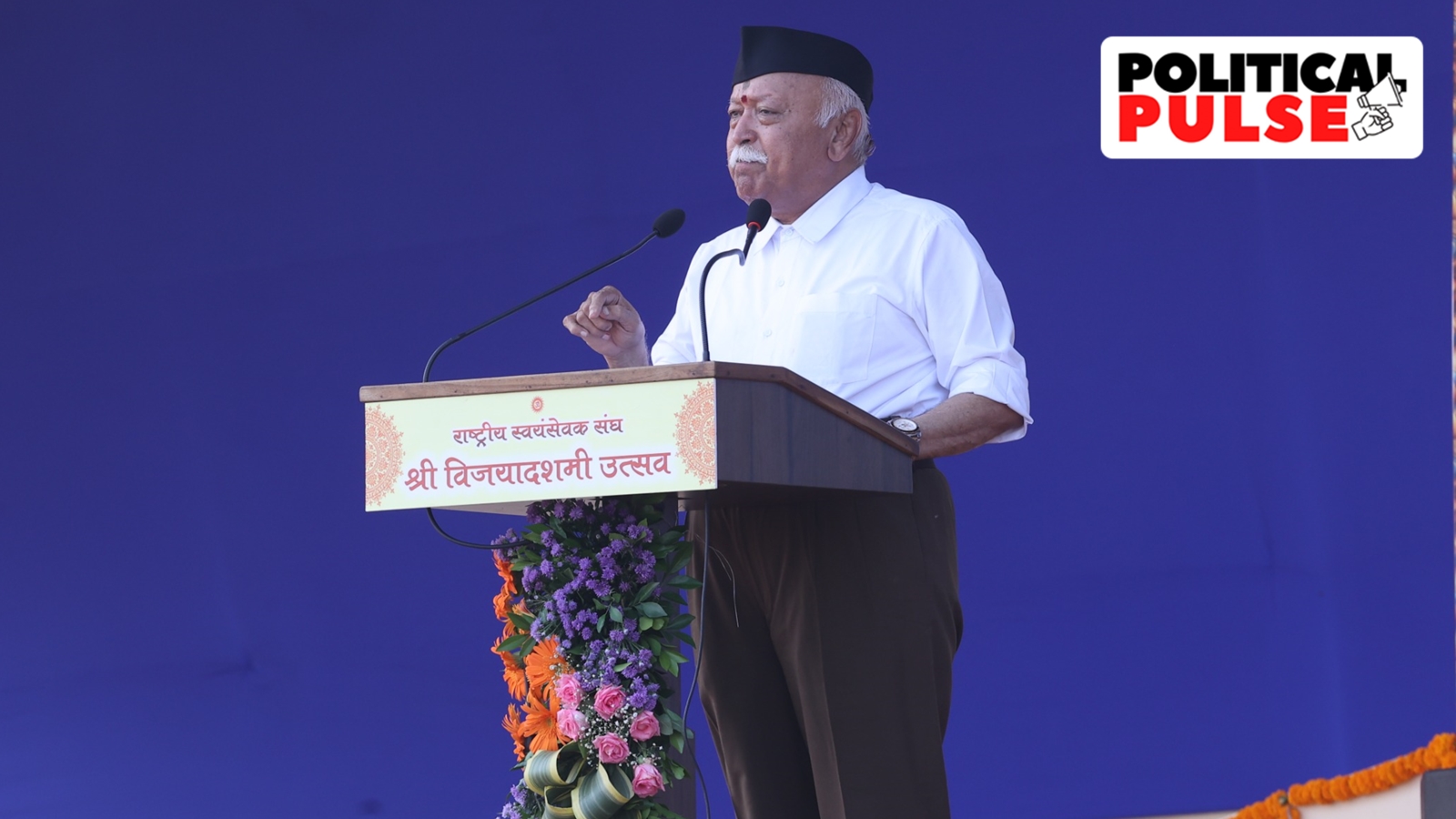 |
|
RSS chief Mohan Bhagwat's annual Vijayadashami speech in Nagpur on Saturday outlined the organization's agenda for the coming year, focusing on themes of Hindu unity, societal security, and the regulation of online platforms. Bhagwat's call for bridging caste divides within the Hindu community, a recurring theme in his speeches, took center stage this year. He emphasized the need for a cohesive Hindu society where all sections celebrate festivals and participate in public spaces like temples and crematoriums together, highlighting the importance of individual and family level friendship across caste lines.
Addressing the issue of violence against religious processions, Bhagwat urged Hindus to organize themselves for protection against stone pelting, arguing that while the administration has a responsibility to maintain order, the community must also be prepared to defend itself. He used the analogy of strength in the animal kingdom, stating that the 'weak' are the ones who suffer, prompting individuals to be organized and prepared but not necessarily resorting to violence.
In a section addressing the role of strength and restraint, Bhagwat appeared to allude to the Uniform Civil Code, a contentious legislation expected to be introduced by the government soon. He acknowledged the diversity of India, stating that while new laws may not please everyone, the country's rich history and vast population naturally lead to differences. He urged individuals to express their sensitivity to these differences with restraint, arguing that tolerance and harmony are essential Indian traditions. Violence and hostility toward any community or their faith were deemed harmful and should be met with restraint.
Turning his attention to various states experiencing unrest, Bhagwat highlighted what he perceived as attempts by 'divisive elements' to exploit caste, language, and regional identities to fracture society. He cited examples like Punjab, J&K, Ladakh, Kerala, Tamil Nadu, and the entire Purvanchal region as areas affected by these divisive tactics. He attributed some of the unrest to resorting to violence as a means of protest, advocating for democratic means to express dissatisfaction with policies or situations.
Bhagwat concluded his speech by lamenting the erosion of societal values, emphasizing the need to strengthen the family system and address what he perceived as a 'perversion' in society caused by the content available on OTT platforms. He argued for legal regulation of these platforms, which he believes have a detrimental impact on values. This stance aligns with concerns raised by Hindutva groups over the depiction of Hindu scriptures and narratives of Hindutva politics on some OTT platforms.
Bhagwat's speech has sparked discussions on the role of the RSS in fostering Hindu unity, addressing security concerns, and navigating the evolving social landscape. His call for Hindu unity, while emphasizing the need for social harmony, has also raised concerns about potential exclusion and the potential for a more assertive Hindu identity. His statements on the need for a more organized Hindu society, particularly in response to incidents of stone pelting, have been interpreted by some as advocating for a more self-protective and possibly even vigilante approach. Finally, his condemnation of OTT platforms for their impact on societal values underscores a growing trend of questioning the role of online entertainment in shaping societal norms and values.
